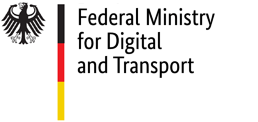Vocational accreditation
Vocational accreditation of degree courses
The STCW Convention and the EU Minimum Training Directive contain minimum requirements for the training of seafarers that have to be met by maritime degree courses. Since these degree courses lead to so-called regulated professions, there are also requirements under professional licencing law: a vocational accreditation and a vocational aptitude test.
An application for vocational accreditation may be submitted to the Federal Maritime and Hydrographic Agency (BSH) by a university established under federal state law. After the application, the BSH provides the university with an overview of the federal requirements for vocational accreditation. This overview lists the international and national legal requirements and the documents that must be submitted to demonstrate compliance. The BSH can issue an accreditation in vocational for a maximum period of five years. Here you will find an overview of the degree courses nautical science, technical and electro-technical engineering at German universities that have been accredited by the BSH under vocational law.
The vocational accreditation ensures that the graduates who have passed vocational aptitude test have the respective required competence, knowledge, understanding and proficiency (theoretical and practical) and are able to safely apply the skills taught in the university-based training on board merchant ships. Only then graduates can apply to the BSH - depending on the degree course - for a navigational, technical or electro-technical certificate of competency.
Legal basis
for the professional accreditation are:
- Regulation I/6, I/8 and I/12 of the Annex to the STCW Convention (as amended),
- Articles 11, 14 and 18 of DIRECTIVE (EU) 2022/993 OF THE EUROPEAN PARLIAMENT AND OF THE COUNCIL of 8 June 2022 on the minimum level of training of seafarers (Minimum Training Directive) as well as
- sectionas 2 and 9 paragraph 1 sentence 1 number 3 letters a and b Seeaufgabengesetz in conjunction with sections 10 to 14 of the Seafarers' Competencies and Proficiencies Regulations (See-BV).

